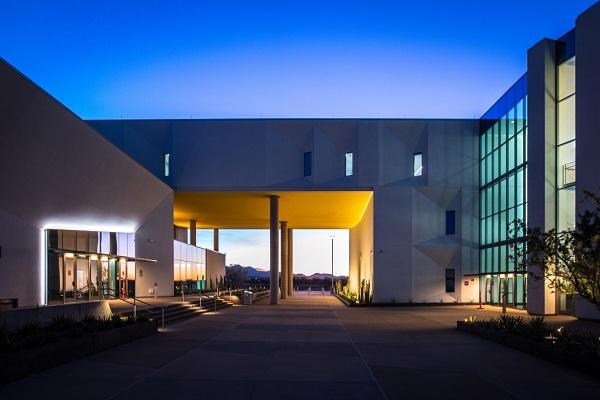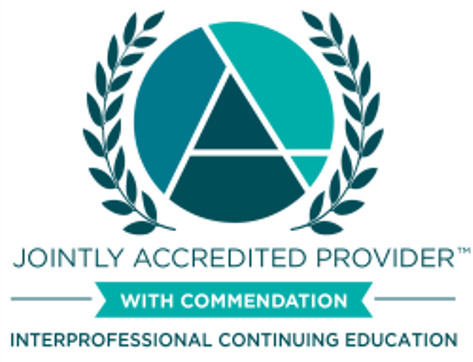Gastrointestinal Pathology 2023
This course offers Live (in-person) and Livestream (virtual) attendance options.

Course Director: Rish K. Pai, M.D., Ph.D., Professor of Laboratory Medicine and Pathology, Consultant, Division of Anatomic Pathology
November 9 - 11, 2023 - Arizona State University Health Futures Center - Phoenix, Arizona
The practice of gastrointestinal pathology is constantly evolving. Practicing pathologists must adapt to the emergence of new diagnostic entities, an increased need for ancillary testing, and the use of advanced endoscopic techniques for treatment of early gastrointestinal neoplasia, among other challenges. Twelve international experts will provide up-to-date information on all aspects of gastrointestinal pathology. Lectures, engaging case reviews, and interactive sessions will address common diagnostic challenges, relevant and need-to-know updates, ancillary diagnostic tools, and emerging issues in GI pathology.
In-person and livestream attendee participation is encouraged via an audience response system.
| Registration | Price |
|---|---|
| M.D., D.O., Ph.D. | $875 |
| Allied health, NP, PA, Retirees | $750 |
Target Audience
This program is designed for practicing general surgical pathologists, gastrointestinal pathologists, and pathologists in training.
Learning Objectives
Upon completion of this activity, participants should be able to:
- Illustrate pertinent clinicopathologic features of celiac disease and its differential diagnosis.
- Recognize patterns of iatrogenic injury and infectious processes in the gastrointestinal tract.
- Integrate efficient molecular and immunohistochemical assays in evaluation of gastrointestinal tract tumors.
- Identify common and uncommon polyps of the gastrointestinal tract.
- Describe the key features that should be reported in endoscopic and surgical resection of gastrointestinal tract tumors.
- Recognize hereditary gastric cancer syndromes and the role of the pathologist.
- Summarize the morphologic features of the most common mesenchymal gastrointestinal tumors.
- Summarize the differential diagnosis of idiopathic inflammatory bowel disease.
Attendance at any Mayo Clinic course does not indicate or guarantee competence or proficiency in the skills, knowledge or performance of any care or procedure(s) which may be discussed or taught in this course.
Attendance at any Mayo Clinic course does not indicate or guarantee competence or proficiency in the skills, knowledge or performance of any care or procedure(s) which may be discussed or taught in this course.

COURSE LOCATION
Arizona State University Health Futures Center
6161 E. Mayo Boulevard
Phoenix, Arizona 85054
The Arizona State University (ASU) Health Futures Center represents the collaboration between Arizona State University and Mayo Clinic with the shared goal of improving health and well-being outcomes to the community. The center offers the community a chance to participate in a world-class research, innovation and learning environment. The leading-edge facility features a med-tech innovation accelerator, biomedical engineering and informatics research labs, and an innovative education zone.
Ideally located near ASU Health Futures Center (3 miles or 6 minutes away), lodging accommodations have been secured for course participants at the Hilton North Scottsdale at Cavasson. Please see below for additional information.


LODGING ACCOMMODATIONS
Hilton North Scottsdale at Cavasson
7965 E. Cavasson Boulevard
Scottsdale, Arizona 85255
Group Reservations Link
A block of rooms at a special group rate of $259 (USD), plus applicable city/state sales tax, per room, per night, run of house standard, single or double occupancy, is available for course participants and guests. Currently, the sales tax rate is 8.05% and hotel occupancy tax is 14.02% (subject to change without notice.) The hotel offers complimentary wi-fi in guest rooms, self-parking in garage, and access to the fitness center. There is no resort fee. Housekeeping and porterage fees are at the guest’s discretion. Group rates apply three days prior to and three days after course dates, based on group room and rate availability.
The Hotel’s check-in time is 4:00 p.m.; check-out time is 11:00 a.m. All guests arriving before check-in time will be accommodated as rooms become available. The Hotel can arrange to check baggage for those arriving early when rooms are unavailable and for guests attending functions on departure day.
To ensure accommodations, make your reservation before the room block fills or by October 17, 2023. After the cut-off date, the hotel will continue to accept reservations based on space and rate availability. Reservations will be confirmed upon receipt of a valid credit card and first night’s deposit, which is refundable up to seven (7) days in advance of arrival. Reservations cancelled within seven days of the conference will forfeit the deposit of one night’s room and tax.
All travel and lodging expenses are the sole responsibility of the individual registrant.
Travel
Transportation:
Phoenix Sky Harbor International Airport (PHX) is home to 18 airlines offering nonstop flights from Phoenix to 110 domestic destinations and 23 international destinations. Once here, there are many options for transportation including sky train, taxis and rideshare, car and shuttle services, rail service, car rentals and bus system.
Phoenix Sky Harbor International Airport (PHX) is located approximately 22 miles (21 minutes) from ASU Health Futures Center, where the course will be held, and 24 miles (23 minutes) from the Hilton North Scottsdale at Cavasson.
Adventure:
Come early and stay late to explore all that Arizona has to offer. In addition to perpetual sunshine, immerse yourself in the arts and culture, enjoy serene desert gardens, one-of-a-kind museums, award-winning dining, or explore the high Sonoran Desert. There's something for everyone to enjoy.
Just a few hours to the north is Sedona which is surrounded by red-rock buttes, steep canyon walls and pine forests. Uptown Sedona is dense with New Age shops, spas and art galleries. The Grand Canyon in Arizona is a natural formation distinguished by layered bands of red rock, revealing millions of years of geological history in cross-section. The canyon averages 10 miles across and a mile deep along its 277-mile length.
Much of this area is national park, with Colorado River white-water rapids and sweeping vistas.
To the south is Tucson, Arizona's second-largest city and a UNESCO City of Gastronomy and year-round outdoor playground. Enjoy the history and see how the city today unifies Hispanic, Native American and Anglo cultures.
 Accreditation Statement
Accreditation Statement
In support of improving patient care, Mayo Clinic College of Medicine and Science is jointly accredited by the Accreditation Council for Continuing Medical Education (ACCME), the Accreditation Council for Pharmacy Education (ACPE), and the American Nurses Credentialing Center (ANCC) to provide continuing education for the healthcare team.
Credit Statement(s):
AMA
Mayo Clinic College of Medicine and Science designates this live activity for a maximum of 19.50 AMA PRA Category 1 Credits™. Physicians should claim only the credit commensurate with the extent of their participation in the activity.
| Day | Credit |
|---|---|
| Thursday | 7.50 |
| Friday | 7.75 |
| Saturday | 4.25 |
Other Healthcare Professionals:
A record of attendance will be provided to all registrants for requesting credits in accordance with state nursing boards, specialty societies or other professional associations.
For disclosure information regarding Mayo Clinic School of Continuous Professional Development accreditation review committee member(s) and staff, please go here to review disclosures.
Available Credit
- 19.50 AMA PRA Category 1 Credit™
- 19.50 Attendance
For information regarding exhibit opportunities, please reach out to Kristy Badder.
| Thank you to the following exhibitors for their virtual support of this course: | |
|---|---|
 | |
The Virtual Exhibit Hall is paid advertising. The use of the Site and the Content, including Third Party Content, is at your own risk.
Please update your profile to let us know if you have dietary restrictions or access requirements.
To claim credit for livestream participation in this course, learners must view the content during the hours posted for the live activity. This course is not approved for on-demand delivery.
Commitment to Equity, Diversity and Inclusion
Mayo Clinic School of Continuous Professional Development (MCSCPD) strives to foster a learning environment in which individual differences are valued, allowing all to achieve their fullest potential.
Cancellation and Refund Policy
View Cancellation and Refund Policy
All requests must be submitted in writing using the Contact Us Form.
Any use of this site constitutes your agreement to the Terms and Conditions of Registration.

 Facebook
Facebook X
X LinkedIn
LinkedIn Forward
Forward